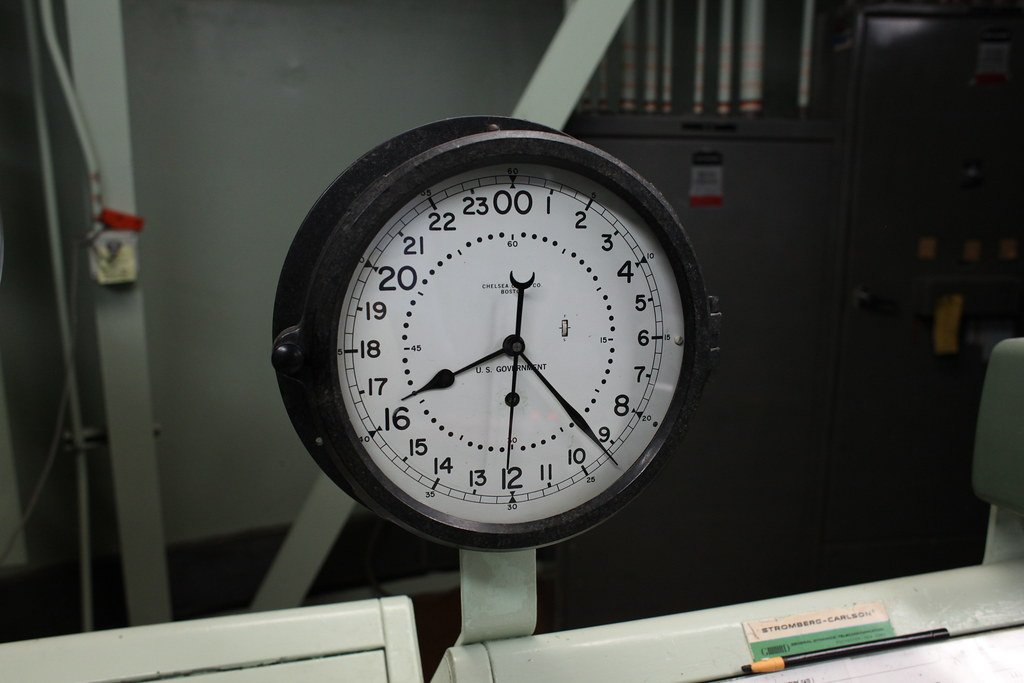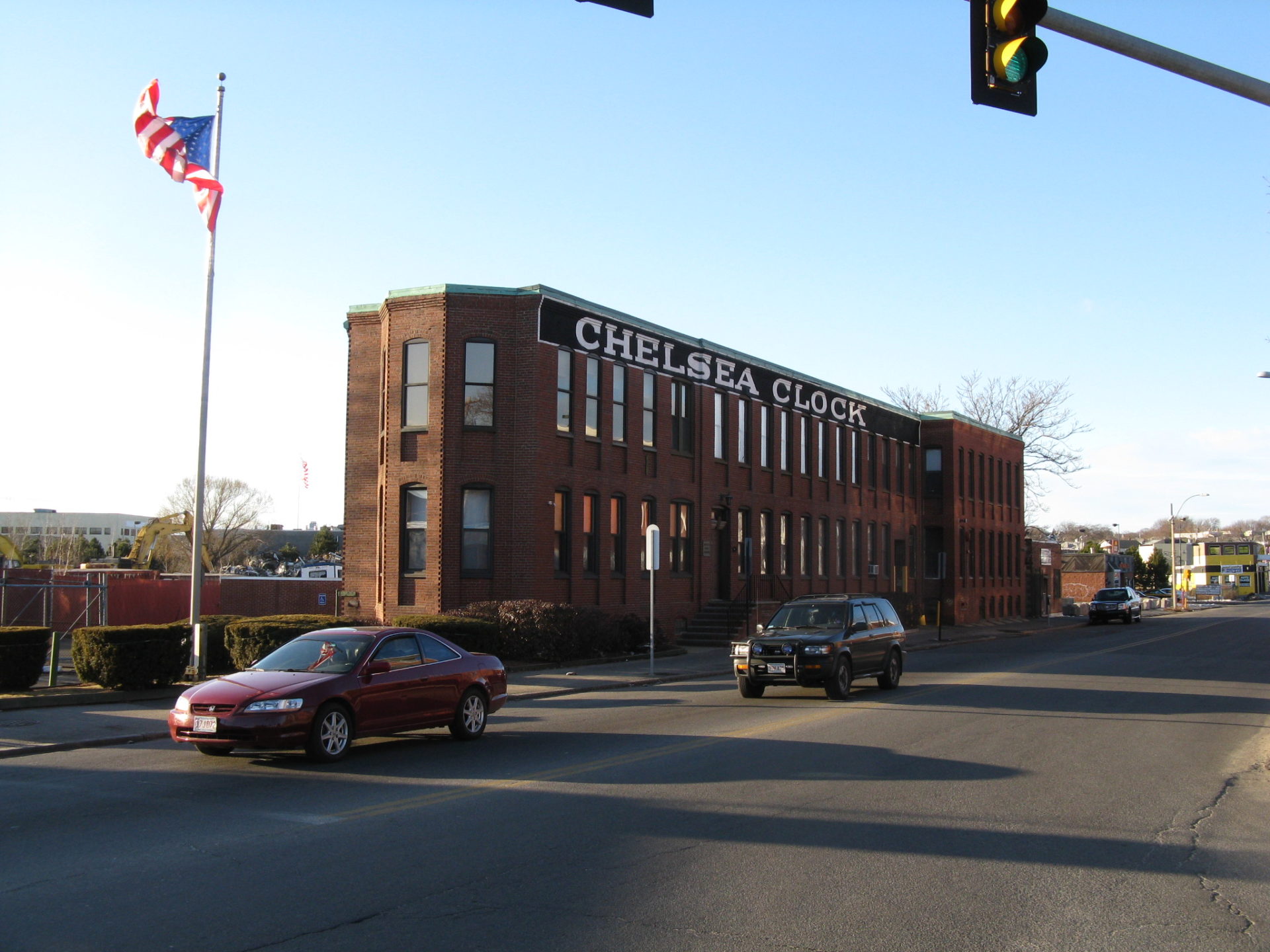The earliest clockmaker in Massachusetts was Simon Willard who, in 1802, invented his famous Willard Banjo Clock with which most collectors are familiar. Willard’s clocks were pendulum clocks and were excellent timekeepers.
One of Howard’s apprentices was Joseph Eastman. Eastman started the business that is now the Chelsea Clock Company in 1886. During this time watchmaking advanced to its present excellence. While the watch escapement type of clock had been made in a limited way for use aboard ships, it was Eastman’s idea to put the watch escapement in a high-quality striking clock for home use. It would be small and compact and lend itself to small cases.

In 1886 Eastman built a factory on Everett Avenue in Chelsea MA, and called it the Eastman Clock Company. In 1897, he changed the name yet again to the Chelsea Clock Company.
During World War I and II Chelsea furnished thousands of clocks to the armed forced for use aboard Liberty ships, submarines, destroyers, cruisers, battleships and aircraft carriers. Any number of Chelsea special movements were used in connection with fire control mechanisms on battleships and also with dead reckoning tracers. The U.S. Army still uses many Chelsea clocks in all of its fields of operation to record messages through a message center.
The company offers a wide variety of other products, ranging from newer, more affordable quartz clocks assembled in-house, clocks commissioned specifically for Naval ships, refurbished decommissioned Naval clocks, and of course additional variations on the Ship’s Bell. Chelsea also offers custom clocks made for both individuals and organizations. During our visit, workers were creating various special clocks for Harvard, Tiffany & Co., Augusta National, and the like.
One of the early developments of the Chelsea Clock Company was the Ship’s Bell clock. This particular item proved to be a very popular one, not only for use at sea, but also for home use. Chelsea’s Ship’s Bell clock and non-striking clocks are found in every port in the world. In addition to the use of Chelsea clocks in the home and at sea, they are used in a great variety of instruments for recording purposes. In water stage recorders are used in Russia, Japan, India, New Zealand, Australia, Mexico and many other places.
According to clockguy.com; en.wikipedia.org; hodinkee.com. Source of photos: internet








